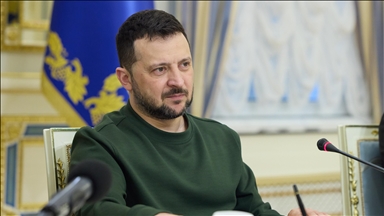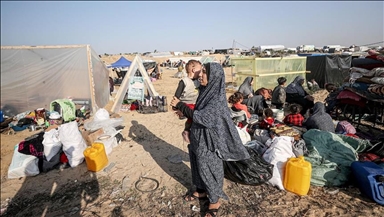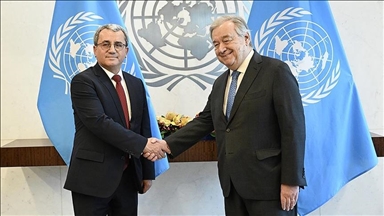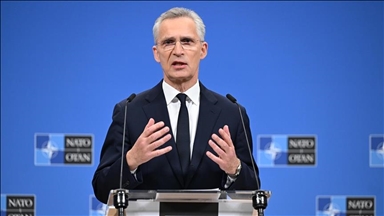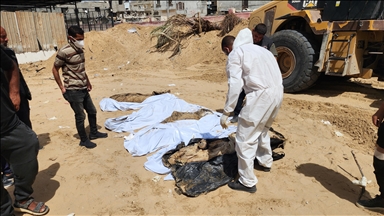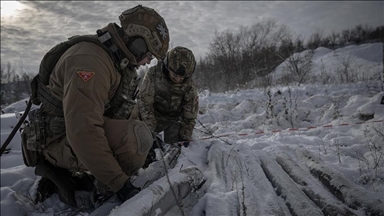Civilian deaths in Ukraine war rise to 1,982, refugees surpass 4.6M: UN
At least 2,651 people injured in conflict since Feb. 24, according to UN agency
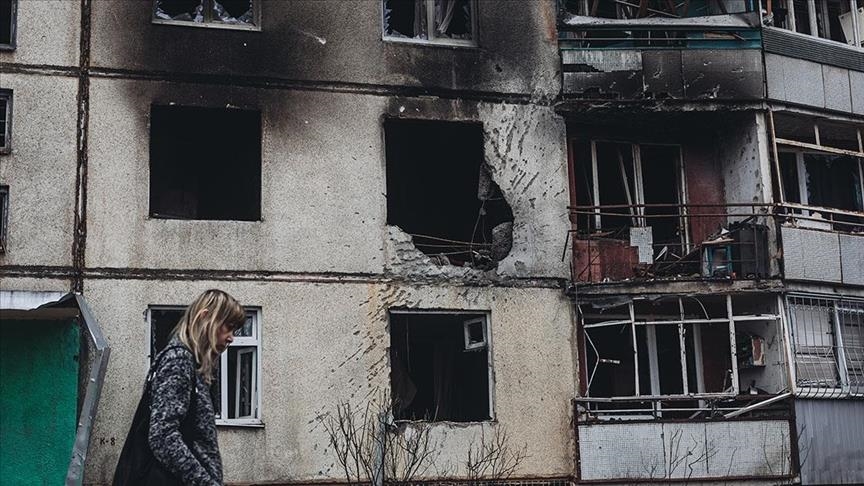
ANKARA
The civilian death toll in the Russia-Ukraine war climbed to 1,982, the UN said Friday, while the number fleeing has surpassed 4.6 million.
At least 2,651 more people have been injured in Ukraine since Feb. 24, the Office of the UN High Commissioner for Human Rights (OHCHR) said in a statement.
“Most of the civilian casualties recorded were caused by the use of explosive weapons with a wide impact area, including shelling from heavy artillery and multiple launch rocket systems, and missile and air strikes,” it said.
Data from the UN High Commissioner for Refugees (UNHCR) showed the number of people who have left Ukraine since the start of the war has risen to more than 4.63 million.
Most have gone to neighboring countries – more than 2.72 million to Poland, 726,857 to Romania, 484,725 to Russia, 447,053 to Hungary, 419,499 to Moldova, 329,597 to Slovakia and 22,827 to Belarus, according to the latest UNHCR figures.
Millions more are internally displaced in Ukraine, with an update from the International Organization for Migration earlier this week placing the number at 7.1 million.
Disabled people in Ukraine
“The continued military attacks against Ukraine are putting the lives of an estimated 2.7 million people with disabilities at risk,” the OHCHR said in a separate statement.
“The Committee on the Rights of Persons with Disabilities today deplored the Russian Federation’s aggression despite repeated calls for a ceasefire and cessation of hostilities,” it said.
The OHCHR said that the Committee also published a statement, emphasizing: “The Committee is deeply disturbed that the fate of people with disabilities in Ukraine is largely unknown.”
“There are ongoing reports that many people with disabilities, including children, are trapped or abandoned in their homes, residential care institutions and orphanages, with no access to life-sustaining medications, oxygen supplies, food, water, sanitation, support for daily living and other basic facilities,” it said.
“People with disabilities have limited or no access to emergency information, shelters and safe havens, and many have been separated from their support networks, leaving them unable to respond to the situation and navigate their surroundings,” the Committee said, according to the OHCHR.
“The continued military attacks leave people with disabilities extremely vulnerable and at grave risk of harm. Women with disabilities are at heightened risk of rape and sexual violence that has been widely reported.
“Few people with disabilities are reported to be internally displaced or to have reached Ukraine’s borders, indicating that many of them have not been able to flee to safety,” it added.
“The United Nations Convention on the Rights of Persons with Disabilities requires States to ensure the inclusion of people with disabilities when meeting their obligations under international law, including international humanitarian and human rights law.
“Ratified by both the Russian Federation and Ukraine, the Convention requires States to take all necessary measures to ensure the protection and safety of people with disabilities in situations of risk, including armed conflict and humanitarian emergencies,” the statement said, according to the OHCHR.
Additionally, the OHCHR reported that “The Committee called on the US, UN agencies, civil society and other parties related with human rights and related actions, urging them “to recognize and respond to the pleas and requirements of people with disabilities caught up in the hostilities.
“Their specific requirements, including according to gender and age, should be identified and included in all responses to the crisis,” it underlined.
“Refugees and internally displaced people with disabilities, and people with disabilities in refugee-like situations need to be provided with support tailored to their individual requirements at border crossings, reception and accommodation facilities and to be provided with relocation assistance.
“Children with disabilities should be provided with individualised support to ensure they are not separated from their families and are protected from institutionalisation and other harmful practices, such as trafficking,” wrote OHCHR as part of the statement by The Committee on the Rights of Persons with Disabilities.
“Above all, the Committee calls upon the Russian Federation to immediately end the hostilities and observe and respect the principles of international human rights and humanitarian law,” it added.



